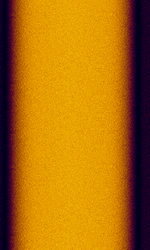Motorola SECURENET
 | |
|---|---|
| Frequencies | 137 MHz,174 MHz,400 MHz,420 MHz,450 MHz,520 MHz,941 MHz,851 MHz |
| Frequency Range | 137 MHz - 941 MHz |
| Mode | FM |
| Modulation | FSK |
| ACF | — |
| Emission Designator | — |
| Bandwidth | 16 kHz |
| Location | Worldwide |
| Short Description | Motorola SECURENET ("analog" encryption) was a secure voice option for conventional and Motorola Type II trunked systems, encoding the voice using 12kbps CVSD and encrypting the bitstream. It is easily identified by the 6 kHz tone at the end of transmission. As it is not 12.5 kHz FCC narrowbanding mandate compliant, it does not see much use anymore. |
| I/Q Raw Recording | Download file |
| Audio Sample | |
Not to be confused with the Motorola Type II trunking system
Motorola SECURENET is an obsolete voice encryption algorithm supported by Motorola MTS/MCS, Saber/Spectra, ASTRO XTL/XTS, and APX radios. Analog voice is digitized with CVSD at 12 kHzKiloHertz (kHz) 10^3 Hz, and the bitstream is encrypted before transmission using 2-level FSKFrequency-Shift Keying. There is minimal data transmitted alongside the CVSD voice to prevent interruptions in the voice audio, and due to the encryption algorithms' high-entropy output, SECURENET sounds like noise when tuned with a conventional FMFrequency Modulation receiver (with exception to the 6 kHzKiloHertz (kHz) 10^3 Hz end-of-transmission tone). SECURENET decoded audio quality is poor due to the heavy lowpassing necessary with CVSD.
SECURENET can be used simplex, through a repeater (capable of passing unfiltered audio, or via reconstruction of the bitstream), or as a system voice option of a Motorola Type I or Type II trunked system. If MDC1200 pre-transmission PTTPush To TalkPress to TransmitMinistries of Postal, Telephone, and Telegraph Service (Soviet Agency)-ID/RAC is enabled on a secure channel, the radio will send the MDC in clear analog with any configured PL/DPL, drop PL/DPL after sending MDC1200, and proceed with SECURENET voice; this permits repeaters to use PL/DPL squelch and/or MDC Repeater Access Codes with secure voice.
Algorithms[edit]
SECURENET supports several algorithms:
- DES 56-bit
- DVP 32-bit
- DES-XL 56-bit
- DVP-XL 96-bit
- DVI-XL (export version of DVP-XL)
XL algorithms use a different mode of clock synchronization to improve weak-signal reception; range is still poorer than clear analog voice.